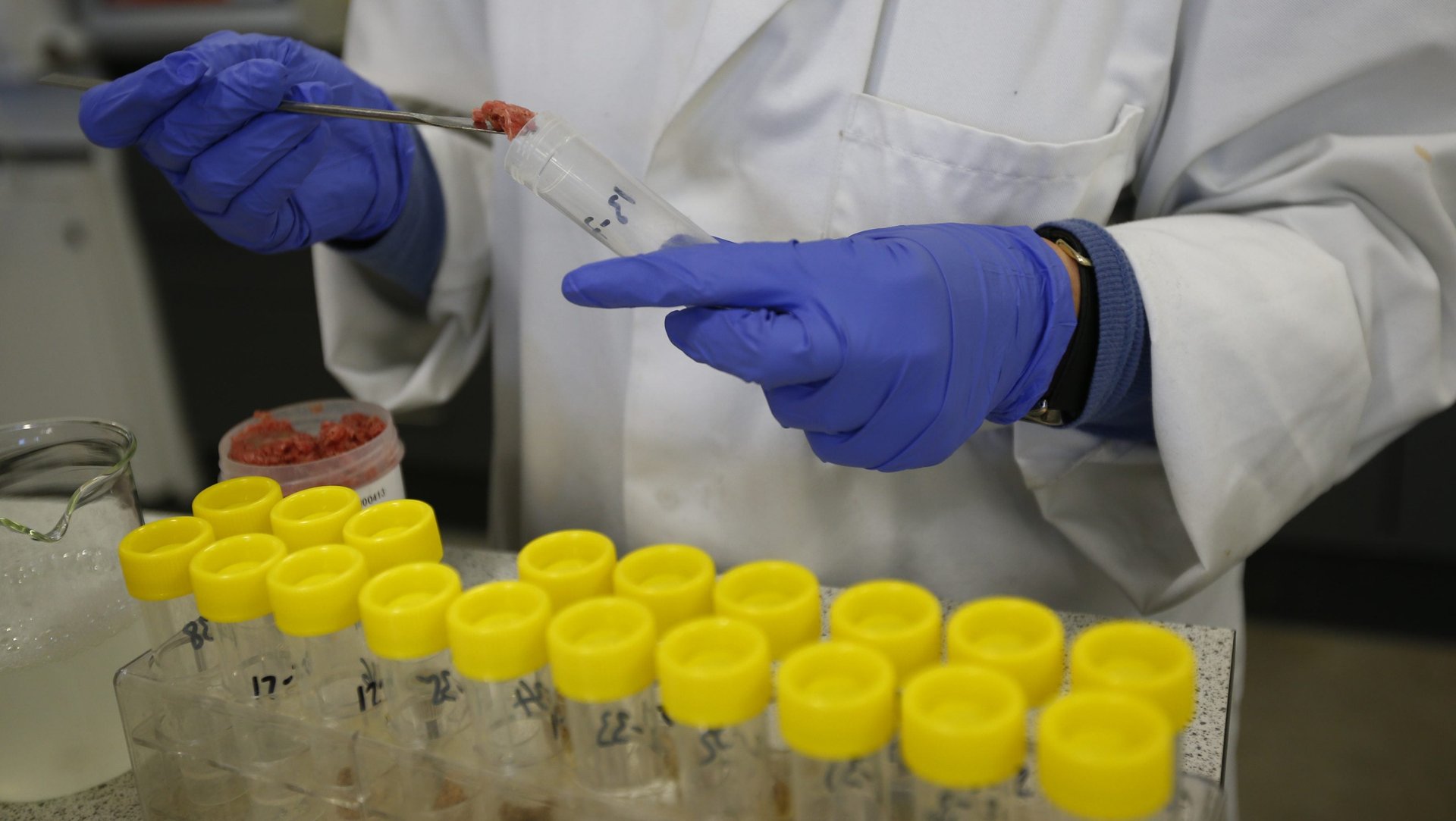Under fire, India’s food safety regulator admits it is a bit of a mess
A day after the Food Safety Standards Authority of India (FSSAI) was slammed by the Comptroller and Auditor General (CAG) of India for the lack of robust food-quality standards and ill-equipped laboratories, among other things, the country’s top food regulator has acknowledged some of the auditor’s findings.


A day after the Food Safety Standards Authority of India (FSSAI) was slammed by the Comptroller and Auditor General (CAG) of India for the lack of robust food-quality standards and ill-equipped laboratories, among other things, the country’s top food regulator has acknowledged some of the auditor’s findings.
But here is its defence: regulating India’s food standards is a difficult and complex task.
In a detailed response to the CAG’s 86-page report (pdf), the FSSAI has listed all the tasks accomplished by it over the last few years. The “CAG report should, however, be seen in the context of the huge and complex task at hand and the fact that FSSAI is a new and evolving organisation and it faces severe constraints of manpower and resources,” the food regulator added.
Specifically, this is how the FSSAI has countered some of the CAG’s key observations:
- Food testing and state of labs: In its report, the CAG was critical of the FSSAI for the poor state of its testing facilities, citing a lack of relevant equipment. The FSSAI has been working to “ensure that its state food laboratories and referral laboratories are fully equipped and functional,” it said in its release. In 2016, the regulatory body was granted Rs480 crore by the central government to strengthen these facilities, it added. Several labs are also in the process of being accredited by the National Accreditation Board for Testing and Calibration Laboratories (NABL), another point noted by the CAG.
- Standards for regulating food items: The CAG report stated that the FSSAI had failed to set standards for regulating certain food products, allowing the sale of items unfit for consumption. Replying to the CAG’s claims, the food regulator said, “The recent years have witnessed rapid progress in developing new regulations and food standards. FSSAI has notified nearly 9,000 provisions for use of around 400 food additives in various food categories.” These, it said, included regulations on imports, health supplements and nutraceuticals, and approval for non-specified food and food ingredients.
- Compliance with food regulations: The CAG noted that the FSSAI had failed to constantly monitor and inspect food operators across states. In response, the regulator emphasised that “several state food authorities have conducted surveys of food business activities under their jurisdiction and some states have not been able to do so due to acute shortage of manpower.”
- Appointing well-trained staff: Allaying the CAG’s staff-shortage concerns, the regulator said it had “finalised the recruitment regulations and asked for a creation of about 600 new posts to strengthen the FSSAI set-up across the country.” The FSSAI is training and building the capacity of lab staff and adding to its small pool of food analysts through a series of examinations.
Established in 2011 under the Food Safety and Standard Act, 2006, the FSSAI is part of India’s ministry of health and family welfare. It is responsible for laying down scientific standards for food items and regulating their manufacturing, storage, distribution, sale, and import. However, the regulatory body has been in the news for lack of competent labs to conduct food tests.
For instance, in 2015, FSSAI was engaged in a very public battle with Swiss multi-national, Nestle, after it alleged that samples of Maggi noodles contained higher-than-permissible content of MSG and lead. The crisis put the FSSAI in the spotlight and even led industry watchers to question the regulatory body’s functioning. The episode led to the health ministry calling for a complete revamp of the regulatory body.
Later that year, the FSSAI’s then head Yudhvir Singh Malik was replaced with the current chief Pawan Agarwal. Since then, Agarwal has been making the right noises, urging the industry as well as policymakers to draft new rules, step up initiatives to revamp its laboratories, and train more food technicians.
But going by the CAG’s report, the FSSAI still has a lot of work to do.